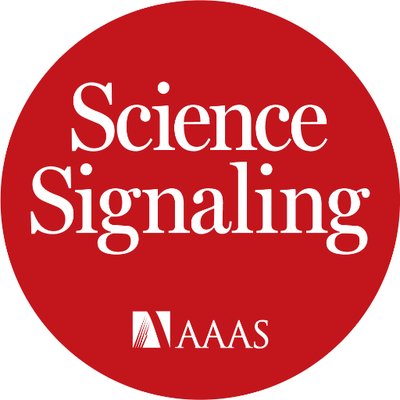A Science journal has issued expressions of concern for two papers on Alzheimer’s disease over concerns about the integrity of the data.
One involves a 2016 article by a star-studded group of neuroscience researchers over allegations of manipulated data in one of the figures. That paper, “Gain-of-function mutations in protein kinase Cα (PKCα) may promote synaptic defects in Alzheimer’s disease,” appeared in Science Signaling and came from a team led by Rudolph Tanzi and Roberto Malinow, of Harvard and UC San Diego, respectively.
Here’s the notice for the paper, which has been cited 64 times, according to Clarivate’s Web of Science:
Science Signaling is publishing an Editorial Expression of Concern regarding the Research Article, “Gain-of-function mutations in protein kinase Cα (PKCα) may promote synaptic defects in Alzheimer’s disease,” by Stephanie Alfonso and colleagues. The editors of the journal have been made aware of accusations of data manipulation regarding figure S1, which are being investigated. The journal is publishing this Editorial Expression of Concern to make readers aware of these accusations while we await the outcome of the investigation.
The second article, “The amyloid-β oligomer Aβ*56 induces specific alterations in neuronal signaling that lead to tau phosphorylation and aggregation,” was published in 2017. The group of authors differs from the 2016 work – except for two co-authors, Mathew Sherman and Sylvain E. Lesné, both of the Department of Neuroscience at the University of Minnesota, in Minneapolis.
The notice for that paper, cited 50 times, reads:
Science Signaling is publishing an Editorial Expression of Concern regarding the Research Article, “The amyloid-β oligomer Aβ*56 induces specific alterations in neuronal signaling that lead to tau phosphorylation and aggregation” by Fatou Amar and colleagues. The editors have been made aware of accusations of data manipulation regarding figures 1A, 3A, 6G, S9D and S12A, which are being investigated. The journal is publishing this Editorial Expression of Concern to make readers aware of these accusations while we await the outcome of the investigation.
We emailed Sherman and Lesné for comment and received this statement from the University of Minnesota:
We are aware that questions have arisen regarding certain images used in peer-reviewed research publications authored by University faculty Karen Ashe and Sylvain Lesné. The University will follow its processes to review the questions any claims have raised. At this time, we have no further information to provide.
The two articles in Science Signaling are among 10 papers by Lesné dating back to 2003 that have been flagged on PubPeer for questions about the figures. Two of those papers — one in the Journal of Neuroscience and one in Brain — have been corrected. Some of the ten papers include Ashe as a co-author.
Like Retraction Watch? You can make a tax-deductible contribution to support our work, follow us on Twitter, like us on Facebook, add us to your RSS reader, or subscribe to our daily digest. If you find a retraction that’s not in our database, you can let us know here. For comments or feedback, email us at [email protected].

Please note I did not “lead” this study. I provided human genetic association data (from whole genome sequencing) for a rare PKC alpha gene mutation we found genetically associated with Alzheimer’s disease . None of the cell biology experiments were performed in my lab.
Rudy Tanzi
Perhaps people can differ on the semantics of the word choice of “lead.”
So to be more explicit:
In the paper, Rudolph Tanzi was:
1) listed as the penultimate author,
2) listed as one of 3 corresponding authors,
3) credited as one of 3 who designed the study,
4) noted as contributing to writing of the manuscript,
5) credited with providing funding through 2 separate grants, and
6) inadvertently *not* credited with providing human genetic association data for a rare PKC alpha gene mutation.
I was co-corresponding for leading the human genetic association study that identified the putatively pathogenic rare PKC alpha mutation associated with AD. Accordingly, my group at MGH and I led the design and write up of the human genetic portions of the paper.
To clarify, my lab carried out the human whole genome sequencing and statistical genetic studies that led to the Alzheimer’s disease associated mutation in the PKC alpha gene. The mutation was provided to the two other co-corresponding authors who carried out functional studies of the mutation.
To be fair to Dr Tanzi, fraud is near impossible to detect unless you are specifically looking for it. And based on the already published science, the claims were hardly extraordinary and requiring of extraordinary proof.
“To be fair to Dr Tanzi, fraud is near impossible to detect unless you are specifically looking for it.”.
By just keep your eyes open and you’d notice it.
https://pubpeer.com/search?q=lesne